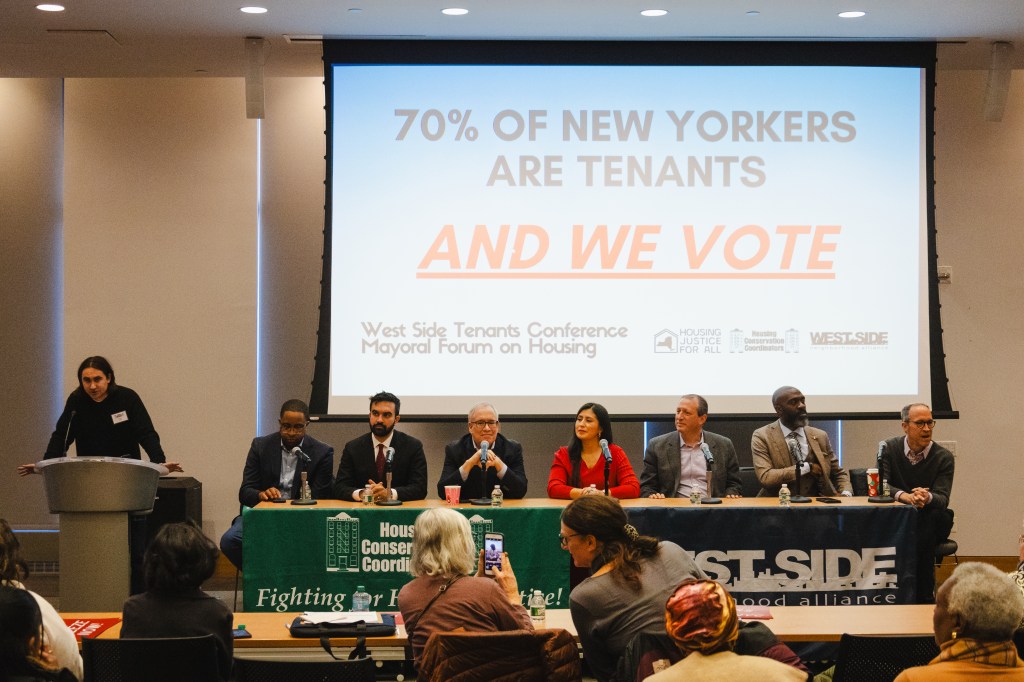Much of the discussion surrounding the budget now being negotiated between Mayor Michael Bloomberg and the City Council focuses on schools and the need to retain as much money as possible to protect the future of the Citys 1.1 million public school students.
But what do high school students themselves think about the budget crisis? How would these teens divvy up the Citys depleted fiscal pie? And what would they do to ensure the Big Apples recovery from the devastation of Sept. 11?
Soliciting the opinions of teenagers and educating elected officials and the public about the critical issues surrounding children and teens in the City has long been the mandate of the Citizens Committee for Children (CCC) of New York City Inc., a non-profit group.
For the past four years, the CCC has been sponsoring the "Great Kids Budget Debate," a forum to allow teenagers from high school debate teams to hammer out budget issues, like the Mayor and members of the Council do. "While one in four New Yorkers are children, 38% of the total budget cuts proposed are to services for children and youth," according to a release by the CCC.
A total of 13 high schools, including Grover Cleveland in Queens, and Franklin K. Lane, which sits on the border of Jamaica and Brooklyn, participated in the debate in the McGraw-Hill Auditorium on Sixth Ave. in Manhattan.
The students prepared both the pro and con sides of six budget-related issues. A coin toss before each debate determined which side the teams would take. A post-debate-poll determined where students finally stood on each topic.
In the first match, Alex Rodriguez and Chizhou Yang, juniors at Grover Cleveland, supported the resolution that "Increasing New York Citys tax on cigarettes to $1.50 will help alleviate the budget gap and promote better health."
"When I was first researching this subject I thought that doing the positive side would be easier, but the more research I did the more I agreed with the negative side," said Rodriquez, 16, who said that debating allows him to argue without getting "angry or hit." The negative side captured 64% of the students support.
Two thirds of the students also opposed the debates second resolution: that the Mayor and City Council should pass local legislation requiring developers of retail and commercial properties to include a public amenity in new projects.
Franklin K. Lane students Gary Scott and Danielle Alvarez vehemently opposed the resolution that "to balance the budget, the City should reduce services and cut costs for child care by $80 million, youth services by $1.6 million, libraries by $39 million, and homeless services by $1.5 million."
"Debating causes you to use your mind and to be aware of current events and politics," said Scott. "It helps you in school because you learn to process information quicker."
The students were torn 50-50 on budget cuts. They were also virtually split on whether the school system should be directly responsible to the Mayor; 54% said no. And 59% of students supported the resolution that the WTC site should be rebuilt and devoted to commercial space.
In the last debate, 76% of students opposed the City borrowing $1.5 billion in bonds instead of raising taxes.
Learning how to be an effective debater is invaluable to a students education and job prospects, said Grover Cleveland teacher Nicole Spinella.
"I tell them all the time that in their lives they will have to articulate themselves in an unemotional, professional and concise way," she said. "You can be right, but if you cant articulate your opinion it wont matter."






























